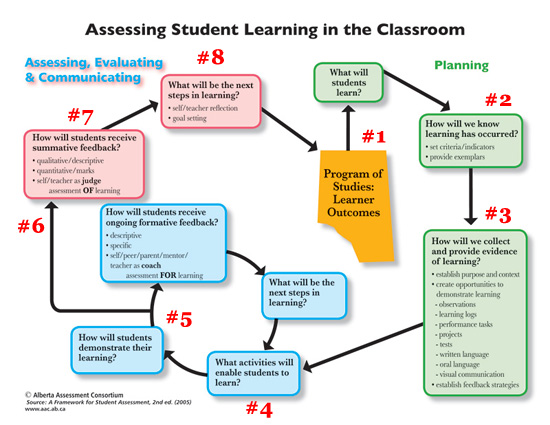| Social Studies | Close this window |

Assessment in Alberta: Discussion Paper
This discussion paper explores internationally accepted principles and practices of fair assessment within a context of critical thinking and the Alberta Social Studies Program of Studies.
Research and Key Questions(See Bibliography for source information) Research Base A substantial research base supports the role of assessment for learning in nurturing critically thoughtful learners. Along complementary lines, research in critical thinking highlights the importance of teaching critical thinking not simply as a skill among many others to be taught; rather critical thinking should be seen as a methodology that is infused throughout the curriculum. The work of Wiggins and McTighe brought to the forefront the importance of linking assessment with curriculum. Curriculum, assessment and critical thinking are complementary to one another and create a natural forum for discussion and planning. The Alberta Assessment Consortium visual (Figure 1) incorporates leading research-based classroom assessment practices that align with the Principles for Fair Student Assessment Practices in Canada. Key questions emerge from this visual to guide the discussion of social studies assessment in Alberta:
|
Next Section: Question 1 





